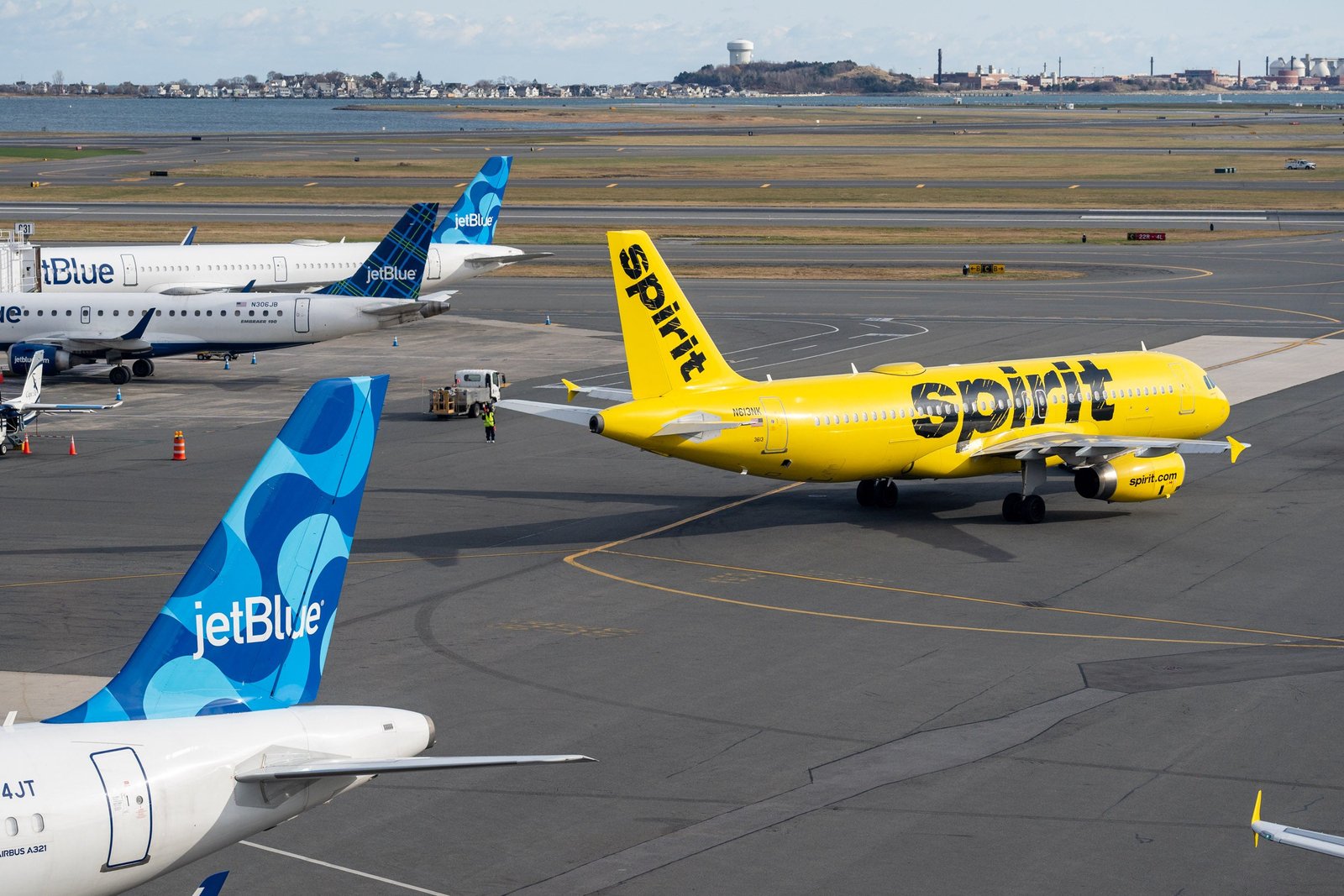JetBlue’s merger with Spirit Airlines was recently blocked by a federal judge, effectively ending any plans for JetBlue to absorb Spirit and eliminate the ultra-low-cost carrier’s brand. The decision was made by Judge William G. Young of U.S. District Court in Massachusetts, who agreed with the U.S. Department of Justice’s argument that the merger would violate antitrust laws and be anti-competitive.
For JetBlue, this ruling is a significant setback, as it comes after the airline’s Northeast Alliance with American Airlines was also scrapped in antitrust court in 2023. JetBlue had argued that it needed Spirit’s aircraft and crew members in order to expand its operations and compete with larger U.S. carriers. However, the court found that the merger would be detrimental to competition in the airline industry.
It remains to be seen whether JetBlue will appeal the decision. In a joint statement, both airlines expressed their disagreement with the ruling and stated that they are reviewing the court’s decision and evaluating their next steps. The share prices for Spirit Airlines fell over 50% following the ruling, while JetBlue’s shares rose more than 5%.
The ruling by Judge Young comes after a month-long trial that concluded on December 5, 2023, in Boston. Throughout the trial, JetBlue argued that the merger with Spirit would allow it to double in size and compete more effectively with the four major U.S. airlines that currently dominate the market. The Department of Justice, on the other hand, contended that the merger would harm price-sensitive consumers, leading to increased prices on certain routes.
While the Department of Justice has challenged previous airline mergers, many have been settled. JetBlue’s lawyers argued that the current landscape of the airline industry, with its four major carriers, necessitates mergers for smaller entrants to survive and thrive. However, the DOJ maintained that the elimination of Spirit from the market would have negative effects on competition and consumer choice.
During the trial, both JetBlue and Spirit also argued that if Spirit were to cease operations, other ultra-low-cost carriers such as Frontier, Allegiant, Avelo, and Breeze would fill the void. Executives from both airlines testified that Spirit, which has struggled to recover from the COVID-19 pandemic, cannot continue operating as an ultra-low-cost carrier in its current form. This suggests that even without the merger, Spirit’s presence in the market would be significantly diminished.
The central question in the trial was whether the potential increase in the lowest airfares on certain routes due to Spirit’s exit would be outweighed by the potential to lower average airfares across the broader market by increasing competition among major carriers. Ultimately, the court sided with the Department of Justice’s argument that the merger would harm competition and consumer interests.
This ruling is not the first time the Department of Justice has won an antitrust case against JetBlue. Last year, the DOJ also successfully blocked JetBlue’s Northeast Alliance with American Airlines. However, that case involved one of the major U.S. carriers and occurred while the Spirit merger was still being considered.
As this is a developing story, more updates and news are expected to follow. JetBlue and Spirit Airlines will need to reassess their plans and consider their next steps in light of this ruling.

